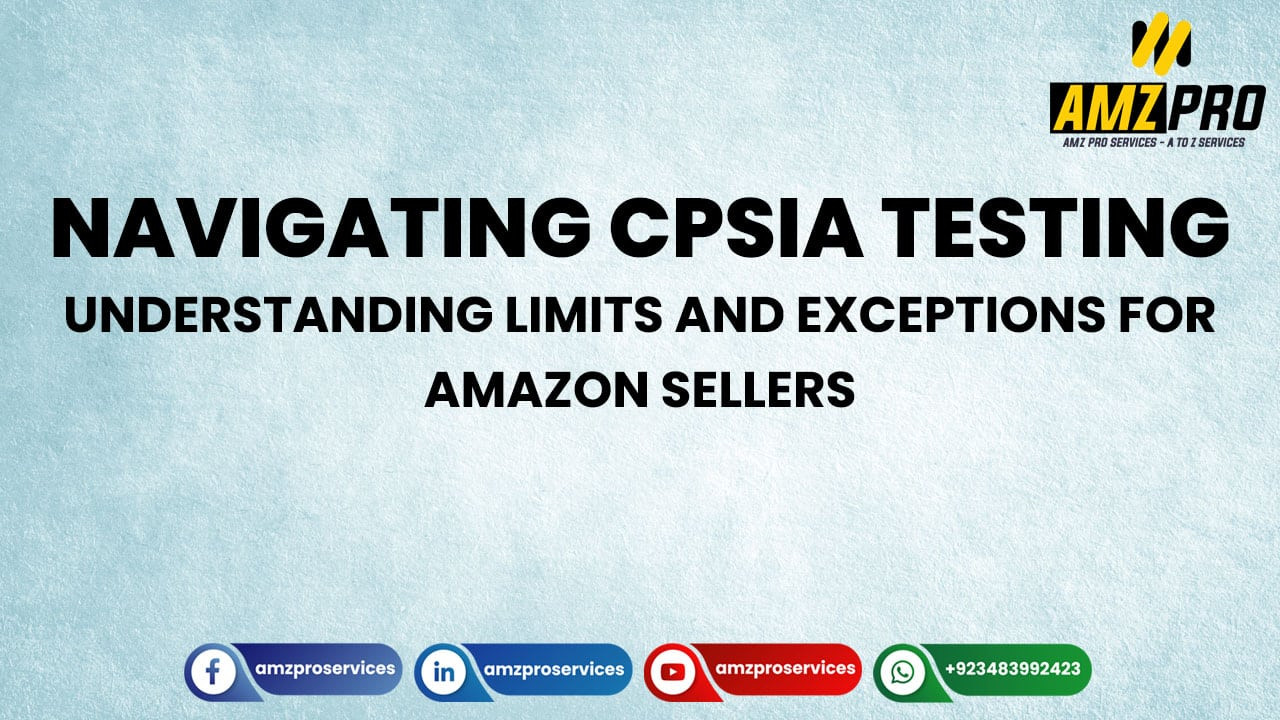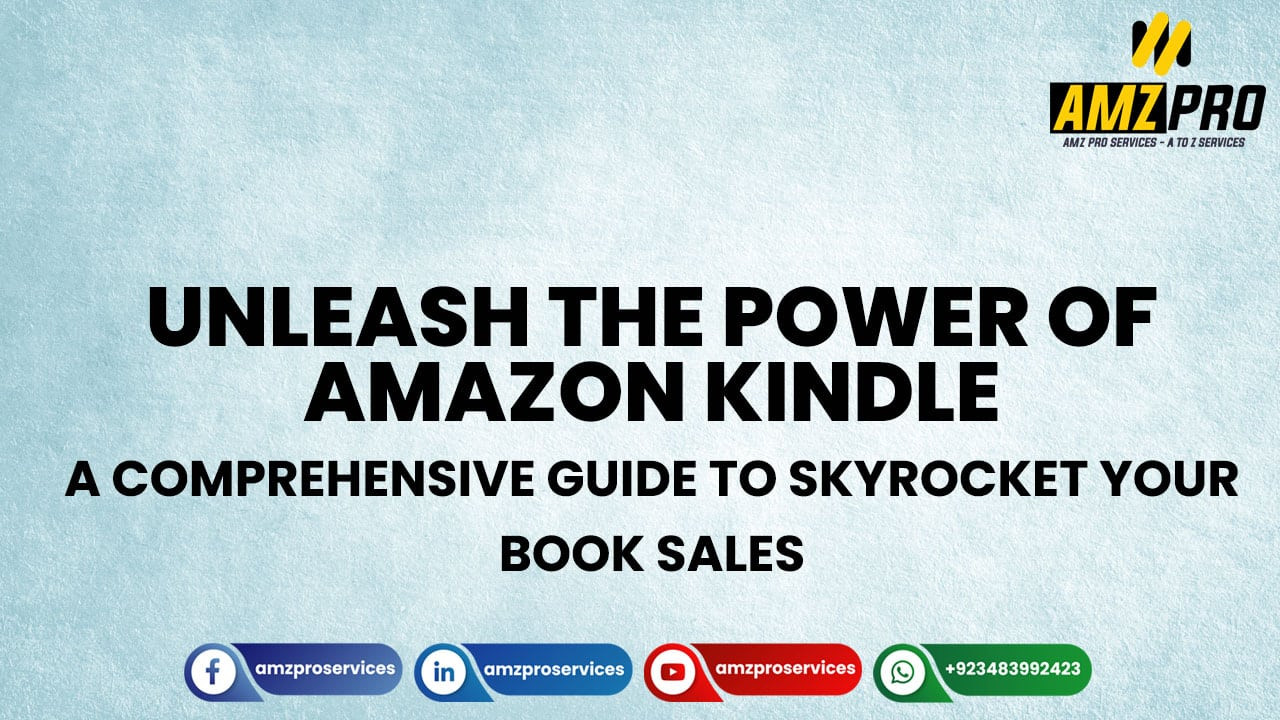Understanding the limits and exceptions of CPSIA testing requirements
Understanding the limits and exceptions of CPSIA testing requirements
CPSIA testing is a crucial step in ensuring the safety of children's products sold on Amazon. However, it is important for Amazon sellers to understand the limits and exceptions of CPSIA testing requirements to avoid unnecessary costs and delays. In this blog post, we will discuss the limits and exceptions of CPSIA testing requirements and how Amazon sellers can navigate them to increase sales.
Testing on Existing Products:
CPSIA testing requirements apply to all children's products manufactured or imported into the United States after the effective date of the applicable regulation. Testing is not required for products manufactured or imported prior to the effective date of the regulation.
Testing for Every Batch:
CPSIA testing requirements do not require testing for every batch of products manufactured. Instead, testing can be conducted on representative samples of a product line, or a production batch can be certified based on previous testing results.
Small Batch Production:
CPSIA testing requirements may not apply to small batch production runs that are made for personal use, testing, or research purposes. However, it is important to note that selling products made during these production runs may still be subject to CPSIA testing requirements.
Exemptions:
CPSIA testing requirements may not apply to certain types of products, including books, bicycles, musical instruments, and sporting goods. However, these products may still be subject to other regulations, such as lead content limits.
Component Testing:
CPSIA testing requirements allow for component testing, which means that certain components of a product can be tested individually rather than testing the entire product. This can be a cost-effective way to comply with CPSIA regulations.
Third-Party Testing Exemptions:
CPSIA testing requirements allow for certain third-party testing exemptions for products that have already been tested by an accredited laboratory. This exemption applies to products that are identical to the tested product and have not been modified or altered in any way.
Small Batch Testing Exemptions:
CPSIA testing requirements allow for small batch testing exemptions for products that are produced in limited quantities. This exemption applies to products that are produced in quantities of less than 7,500 units annually.
Component Parts Exemptions:
CPSIA testing requirements allow for component parts exemptions for products that are made up of multiple components. This exemption applies to components that are already tested and certified, as long as the components are not altered in any way.
Navigating CPSIA Testing Requirements:
Amazon sellers can navigate CPSIA testing requirements by understanding the limits and exceptions of CPSIA testing requirements and working with an experienced third-party testing laboratory. By conducting proper testing and maintaining accurate documentation, Amazon sellers can ensure compliance with CPSIA regulations and avoid unnecessary costs and delays. Additionally, Amazon sellers can benefit from the increased market access, improved customer trust, and reduced liability that come with CPSIA compliance.
How to Increase Sales on Amazon with CPSIA Compliance:
Highlight Compliance in Product Descriptions:
Amazon sellers can highlight CPSIA compliance in their product descriptions to assure customers that their products meet safety standards. This can increase customer confidence in the product and lead to more sales.
Display Certifications:
Amazon sellers can display their certifications prominently in their product listings to show that their products have passed CPSIA testing requirements. This provides customers with tangible evidence that the product is safe and can help increase sales.
Offer Quality Products:
Amazon sellers can ensure that their products are of high quality and free from harmful substances. Quality products can increase customer satisfaction and lead to positive reviews and repeat purchases, driving sales.
Provide Clear Documentation:
Amazon sellers can maintain clear and concise documentation of their testing reports, certifications, and product specifications. This can help them quickly respond to customer inquiries and regulatory requests, which can help avoid any potential sales delays.
Stay Ahead of the Curve:
Amazon sellers can stay informed about CPSIA regulations and any changes or updates that may affect their products. This can help them stay ahead of the curve and ensure that their products remain compliant, which can help maintain customer trust and drive sales.
Build Brand Reputation:
Compliance with CPSIA regulations and offering safe and high-quality products can help Amazon sellers build a strong brand reputation. Positive reviews, customer loyalty, and increased market access can all contribute to a strong brand reputation. A strong brand reputation can attract more customers, increase sales, and create new growth opportunities.
Expand Product Offerings:
CPSIA compliance can also help Amazon sellers expand their product offerings by introducing new and innovative products that meet safety standards. By considering CPSIA compliance during product development, Amazon sellers can create new products that are safe and compliant, leading to increased sales and growth opportunities.
Conclusion:
CPSIA testing requirements can be complex and confusing, but understanding the limits and exceptions of CPSIA testing requirements is crucial for Amazon sellers to avoid unnecessary costs and delays. By navigating CPSIA testing requirements and working with an experienced third-party testing laboratory, Amazon sellers can ensure compliance with CPSIA regulations and capitalize on the benefits of CPSIA compliance, such as increased market access, improved customer trust, and reduced liability. By highlighting CPSIA compliance in product descriptions, displaying certifications, offering quality products, providing clear documentation, staying ahead of the curve, and expanding product offerings, Amazon sellers can further capitalize on the benefits of CPSIA compliance and increase sales on Amazon.


